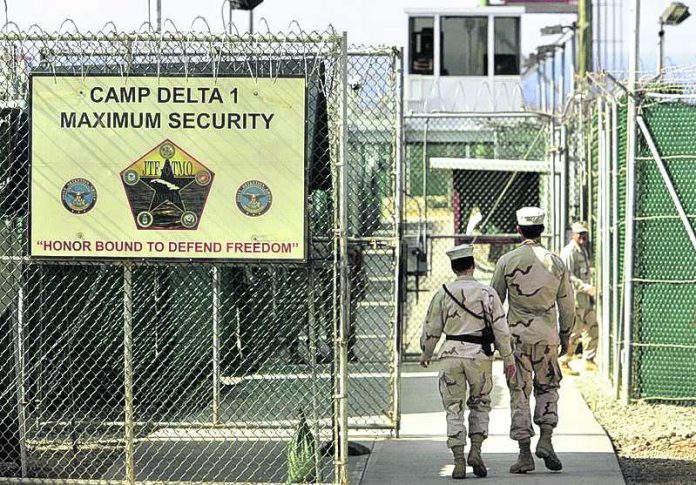Another military judge has stepped down from the Sept. 11 war crimes tribunal at the U.S. Navy base at Guantanamo Bay, Cuba, a further blow to an already long-stalled case.
Marine Col. Stephen F. Keane said in an order issued Friday that he must recuse himself from the case because of his past work for the government and personal connections to victims of the Sept. 11, 2001, terrorist attacks. He was appointed last month.
Keane is the fifth judge to preside over the trial by military commission for five men held at Guantanamo who are charged with planning and assisting the hijacking plot that killed nearly 3,000 people in New York, Washington and Pennsylvania.
Keane said he believes he could serve as an impartial judge in the death penalty case. But the Marine colonel said he did not want to cause further delays or grounds for appeal in a case that has been bogged down in pretrial proceedings since the May 2012 arraignment.
“My continued presence as the military judge in this case arguably creates an appearance of bias,” Keane wrote, before concluding that his recusal is “immediately required.”
Keane, describing his possible conflicts, noted that he grew up in the New York City area and had a close relative who worked for the Fire Department but retired before the Sept. 11 attacks. He also served in a Defense Department counter-terrorism task force, in which he conducted legal reviews concerning the transfer of detainees from Afghanistan to Guantanamo, where the U.S. now holds 40 prisoners.
He also served as a Marine Corps fellow at the Justice Department, working on counter-terrorism issues dealing with al-Qaida, though not on any work directly involving the five defendants in the Guantanamo war crimes case.
In addition, Keane said has a “significant personal connection” to people who were “directly affected by the events of 9/11,” though he did not provide any details.
The five defendants face charges that include terrorism and nearly 3,000 counts of murder in violation of the laws of war. The men include Khalid Shaikh Mohammad, who has portrayed himself as the architect of the Sept. 11 attack and other plots.
Their case has been stalled by its complexity and the challenge of staging a proceeding that combines military and civilian law at the remote base, with prosecution and defense teams flying in periodically for pretrial hearings.
It has also been delayed over legal challenges stemming from the brutal treatment of the five defendants in CIA custody before they were charged. Their lawyers are challenging statements they made to authorities as the product of torture.
The case also has been held up by non-legal issues, including the coronavirus outbreak and the departure of the previous judges.
The initial judge, Army Col. James Pohl, announced his retirement in August 2018 after a long career. The judge who replaced him then retired as well. A third judge, also a Marine colonel, left to take another position last year, leaving a senior judge to preside for about six months until Keane was appointed to the case in September.
A trial before a jury of military officers had, at one point, been scheduled to start in January but a new date has not been set. The next pretrial hearing is in March.




















